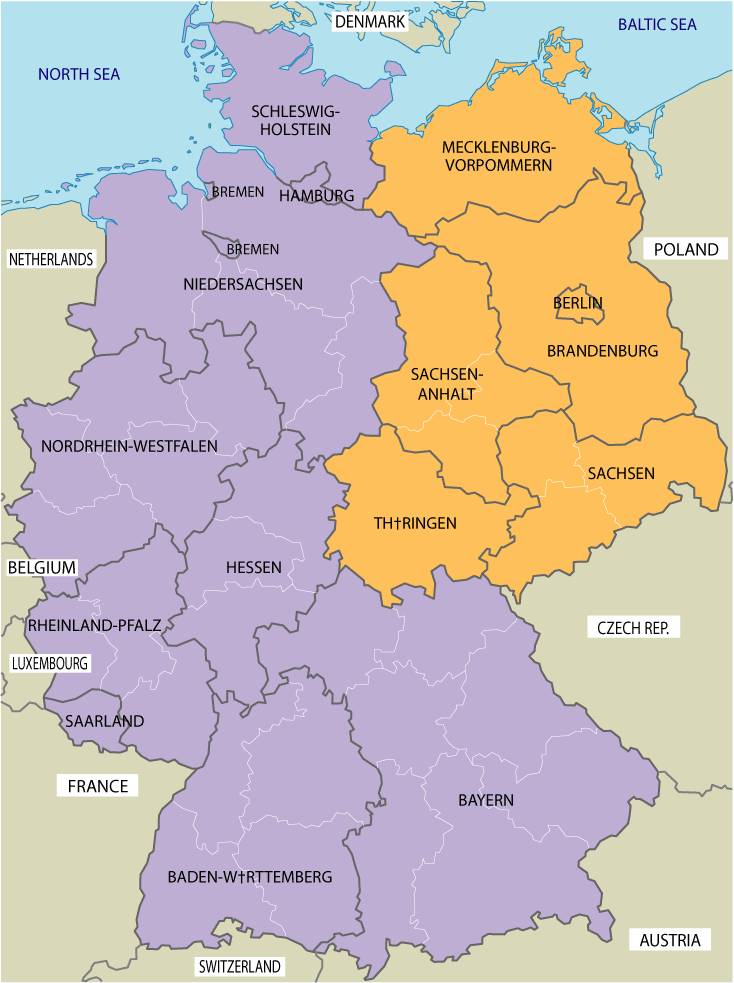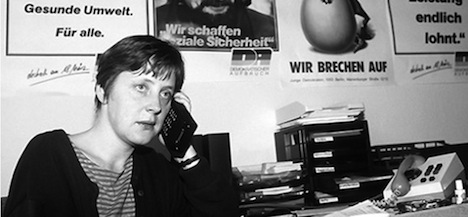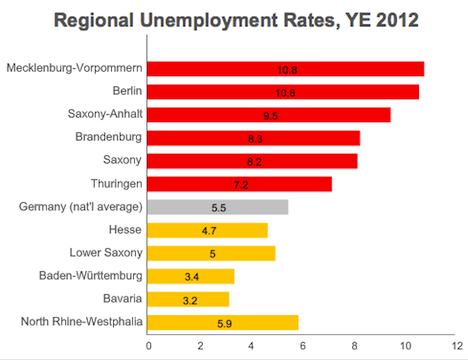Does the rise of an East German (or ‘Ossi’) chancellor in Germany just 15 years after reunification — and her likely reelection 23 years after reunification — showcase just how fast the two Germanies have sutured into a common nation?![]()
Or does it highlight the extent to which the eastern former German Democratic Republic (GDR) has failed to catch up with the western former Federal Republic of Germany (FRG)?
The six eastern German states are home to just 16.3 million Germans today, a vast minority of the country’s 80 million-strong population. But two days before Germans choose whether to give a third term to chancellor Angela Merkel (pictured above in 1990 as an activist for democracy in East Germany) — who was born in Hamburg, but grew up in the eastern city of Templin, in Brandenburg, where her father was a pastor — it all depends on whether you think the glass is half full or the glass is half empty.
Merkel comes from the Christlich Demokratische Union Deutschlands (CDU, Christian Democratic Party), and it was her mentor Helmut Kohl who pushed for the swift reunification of Germany after the historic 1989 fall of the Berlin Wall, which had since 1961 divided the eastern city of Berlin into GDR and FRG sectors.
By some accounts, the six states that comprise what used to be the GDR are doing as well as can be expected less than a quarter-century after transitioning from a command economy to a market economy, and the end of ‘East German identity’ is already at hand:
The end of a country is on the horizon, a country that never formally existed: East Germany. A demographic group that also never formally existed is coming to an end, as well: the East Germans. It’s time for an obituary…. The old eastern German issues have been dealt with. The adjustment of pensions to western German levels is almost complete, and hopefully a uniform minimum wage will clear away some of the absurd differentiation into east and west. Eastern Germany no longer means very much to high-school and university students today. When younger people are asked where they are from, they usually mention the name of a city, a region or a state.
After all, Germany has had an eastern chancellor for the past eight years and, since March 2012, an eastern president in Joachim Gauck who fought hard against the DGR’s authoritarianism before 1990 and spent the first decade after reunification chasing down the phantoms of the DGR’s secret police, the Stasi. The most significant transitional figure of post-reunification eastern politics, Matthias Platzeck, who has been minister-president of Brandenburg, the largest eastern state, since 2002 and a member of its government continuously since 1990, resigned for health reasons in August of this year.
Merkel and the CDU, according to polling data, are polling up to 37% — an increase from the 30% that the CDU won in the previous September 2009 elections.
But economic conditions in the six eastern states still lag behind the rest of Germany.
At the end of 2012, Germany’s unemployment rate stood at 5.5% (it’s 5.3% today going into the federal elections). In each of those six states, the unemployment rate was significantly higher than the national average — compare that to the five largest states, all of which are in what used to be West Germany:
Continue reading Has the first Ossi chancellor been good or bad for the former East Germany?

